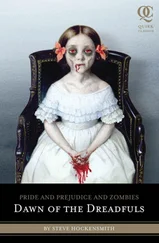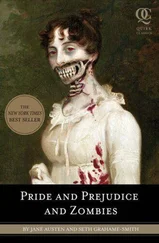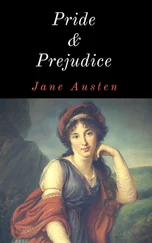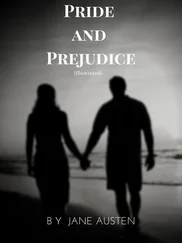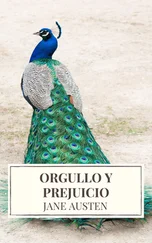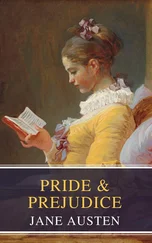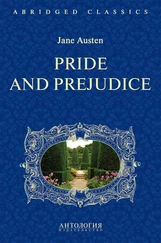Jane Austin - Pride and Prejudice
Здесь есть возможность читать онлайн «Jane Austin - Pride and Prejudice» — ознакомительный отрывок электронной книги совершенно бесплатно, а после прочтения отрывка купить полную версию. В некоторых случаях можно слушать аудио, скачать через торрент в формате fb2 и присутствует краткое содержание. Жанр: unrecognised, на немецком языке. Описание произведения, (предисловие) а так же отзывы посетителей доступны на портале библиотеки ЛибКат.
- Название:Pride and Prejudice
- Автор:
- Жанр:
- Год:неизвестен
- ISBN:нет данных
- Рейтинг книги:3 / 5. Голосов: 1
-
Избранное:Добавить в избранное
- Отзывы:
-
Ваша оценка:
- 60
- 1
- 2
- 3
- 4
- 5
Pride and Prejudice: краткое содержание, описание и аннотация
Предлагаем к чтению аннотацию, описание, краткое содержание или предисловие (зависит от того, что написал сам автор книги «Pride and Prejudice»). Если вы не нашли необходимую информацию о книге — напишите в комментариях, мы постараемся отыскать её.
Pride and Prejudice — читать онлайн ознакомительный отрывок
Ниже представлен текст книги, разбитый по страницам. Система сохранения места последней прочитанной страницы, позволяет с удобством читать онлайн бесплатно книгу «Pride and Prejudice», без необходимости каждый раз заново искать на чём Вы остановились. Поставьте закладку, и сможете в любой момент перейти на страницу, на которой закончили чтение.
Интервал:
Закладка:
lady, and spent the rest of the evening in walking about the
room, speaking occasionally to one of his own party. His
character was decided. He was the proudest, most disagreeable man
in the world, and everybody hoped that he would never come there
again. Amongst the most violent against him was Mrs. Bennet,
whose dislike of his general behaviour was sharpened into
particular resentment by his having slighted one of her
daughters.
Elizabeth Bennet had been obliged, by the scarcity of gentlemen,
to sit down for two dances; and during part of that time, Mr.
Darcy had been standing near enough for her to hear a
conversation between him and Mr. Bingley, who came from the dance
for a few minutes, to press his friend to join it.
“Come, Darcy,” said he, “I must have you dance. I hate to see you
standing about by yourself in this stupid manner. You had much
better dance.”
“I certainly shall not. You know how I detest it, unless I am
particularly acquainted with my partner. At such an assembly as
this it would be insupportable. Your sisters are engaged, and
there is not another woman in the room whom it would not be a
punishment to me to stand up with.”
“I would not be so fastidious as you are,” cried Mr. Bingley,
“for a kingdom! Upon my honour, I never met with so many pleasant
girls in my life as I have this evening; and there are several of
them you see uncommonly pretty.”
“_You_ are dancing with the only handsome girl in the room,” said
Mr. Darcy, looking at the eldest Miss Bennet.
“Oh! She is the most beautiful creature I ever beheld! But there
is one of her sisters sitting down just behind you, who is very
pretty, and I dare say very agreeable. Do let me ask my partner
to introduce you.”
“Which do you mean?” and turning round he looked for a moment at
Elizabeth, till catching her eye, he withdrew his own and coldly
said: “She is tolerable, but not handsome enough to tempt _me_; I
am in no humour at present to give consequence to young ladies
who are slighted by other men. You had better return to your
partner and enjoy her smiles, for you are wasting your time with
me.”
Mr. Bingley followed his advice. Mr. Darcy walked off; and
Elizabeth remained with no very cordial feelings toward him. She
told the story, however, with great spirit among her friends; for
she had a lively, playful disposition, which delighted in
anything ridiculous.
The evening altogether passed off pleasantly to the whole family.
Mrs. Bennet had seen her eldest daughter much admired by the
Netherfield party. Mr. Bingley had danced with her twice, and she
had been distinguished by his sisters. Jane was as much gratified
by this as her mother could be, though in a quieter way.
Elizabeth felt Jane’s pleasure. Mary had heard herself mentioned
to Miss Bingley as the most accomplished girl in the
neighbourhood; and Catherine and Lydia had been fortunate enough
never to be without partners, which was all that they had yet
learnt to care for at a ball. They returned, therefore, in good
spirits to Longbourn, the village where they lived, and of which
they were the principal inhabitants. They found Mr. Bennet still
up. With a book he was regardless of time; and on the present
occasion he had a good deal of curiosity as to the event of an
evening which had raised such splendid expectations. He had
rather hoped that his wife’s views on the stranger would be
disappointed; but he soon found out that he had a different story
to hear.
“Oh, my dear Mr. Bennet,” as she entered the room, “we have had a
most delightful evening, a most excellent ball. I wish you had
been there. Jane was so admired, nothing could be like it.
Everybody said how well she looked; and Mr. Bingley thought her
quite beautiful, and danced with her twice! Only think of _that_,
my dear; he actually danced with her twice! and she was the only
creature in the room that he asked a second time. First of all,
he asked Miss Lucas. I was so vexed to see him stand up with her!
But, however, he did not admire her at all; indeed, nobody can,
you know; and he seemed quite struck with Jane as she was going
down the dance. So he enquired who she was, and got introduced,
and asked her for the two next. Then the two third he danced with
Miss King, and the two fourth with Maria Lucas, and the two fifth
with Jane again, and the two sixth with Lizzy, and the
_Boulanger_—”
“If he had had any compassion for _me_,” cried her husband
impatiently, “he would not have danced half so much! For God’s
sake, say no more of his partners. Oh that he had sprained his
ankle in the first dance!”
“Oh! my dear, I am quite delighted with him. He is so excessively
handsome! And his sisters are charming women. I never in my life
saw anything more elegant than their dresses. I dare say the lace
upon Mrs. Hurst’s gown—”
Here she was interrupted again. Mr. Bennet protested against any
description of finery. She was therefore obliged to seek another
branch of the subject, and related, with much bitterness of
spirit and some exaggeration, the shocking rudeness of Mr. Darcy.
“But I can assure you,” she added, “that Lizzy does not lose much
by not suiting _his_ fancy; for he is a most disagreeable, horrid
man, not at all worth pleasing. So high and so conceited that
there was no enduring him! He walked here, and he walked there,
fancying himself so very great! Not handsome enough to dance
with! I wish you had been there, my dear, to have given him one
of your set-downs. I quite detest the man.”
Chapter 4
When Jane and Elizabeth were alone, the former, who had been
cautious in her praise of Mr. Bingley before, expressed to her
sister just how very much she admired him.
“He is just what a young man ought to be,” said she, “sensible,
good-humoured, lively; and I never saw such happy manners!—so
much ease, with such perfect good breeding!”
“He is also handsome,” replied Elizabeth, “which a young man
ought likewise to be, if he possibly can. His character is
thereby complete.”
“I was very much flattered by his asking me to dance a second
time. I did not expect such a compliment.”
“Did not you? _I_ did for you. But that is one great difference
between us. Compliments always take _you_ by surprise, and _me_
never. What could be more natural than his asking you again? He
could not help seeing that you were about five times as pretty as
every other woman in the room. No thanks to his gallantry for
that. Well, he certainly is very agreeable, and I give you leave
to like him. You have liked many a stupider person.”
“Dear Lizzy!”
“Oh! you are a great deal too apt, you know, to like people in
general. You never see a fault in anybody. All the world are good
and agreeable in your eyes. I never heard you speak ill of a
human being in your life.”
“I would not wish to be hasty in censuring anyone; but I always
speak what I think.”
“I know you do; and it is _that_ which makes the wonder. With
_your_ good sense, to be so honestly blind to the follies and
nonsense of others! Affectation of candour is common enough—one
meets with it everywhere. But to be candid without ostentation or
design—to take the good of everybody’s character and make it
Читать дальшеИнтервал:
Закладка:
Похожие книги на «Pride and Prejudice»
Представляем Вашему вниманию похожие книги на «Pride and Prejudice» списком для выбора. Мы отобрали схожую по названию и смыслу литературу в надежде предоставить читателям больше вариантов отыскать новые, интересные, ещё непрочитанные произведения.
Обсуждение, отзывы о книге «Pride and Prejudice» и просто собственные мнения читателей. Оставьте ваши комментарии, напишите, что Вы думаете о произведении, его смысле или главных героях. Укажите что конкретно понравилось, а что нет, и почему Вы так считаете.


